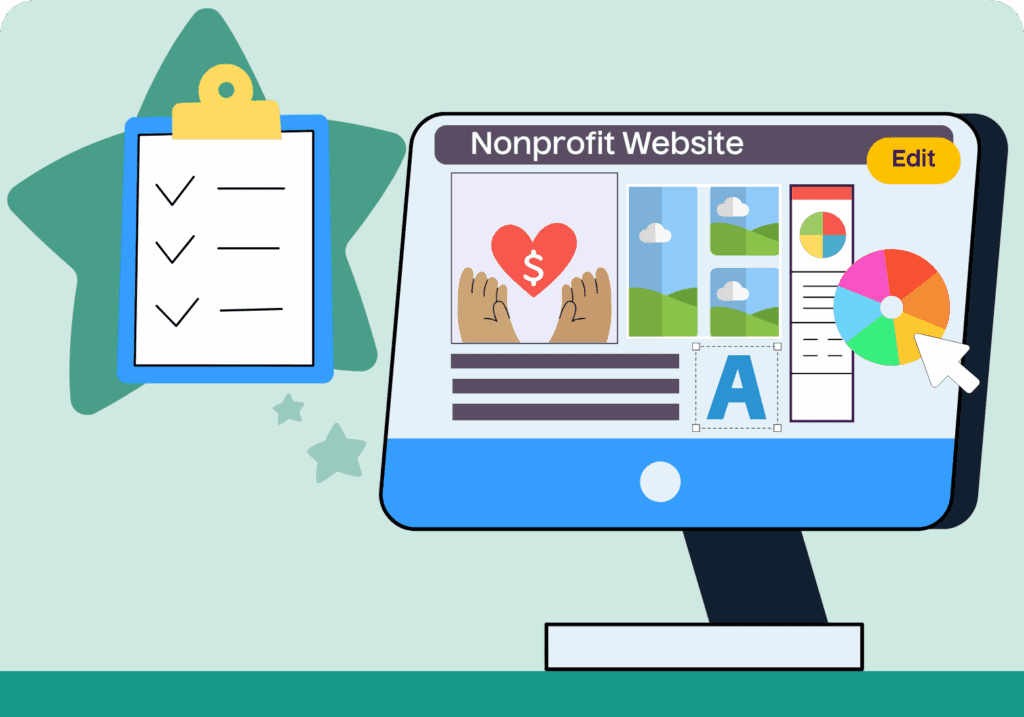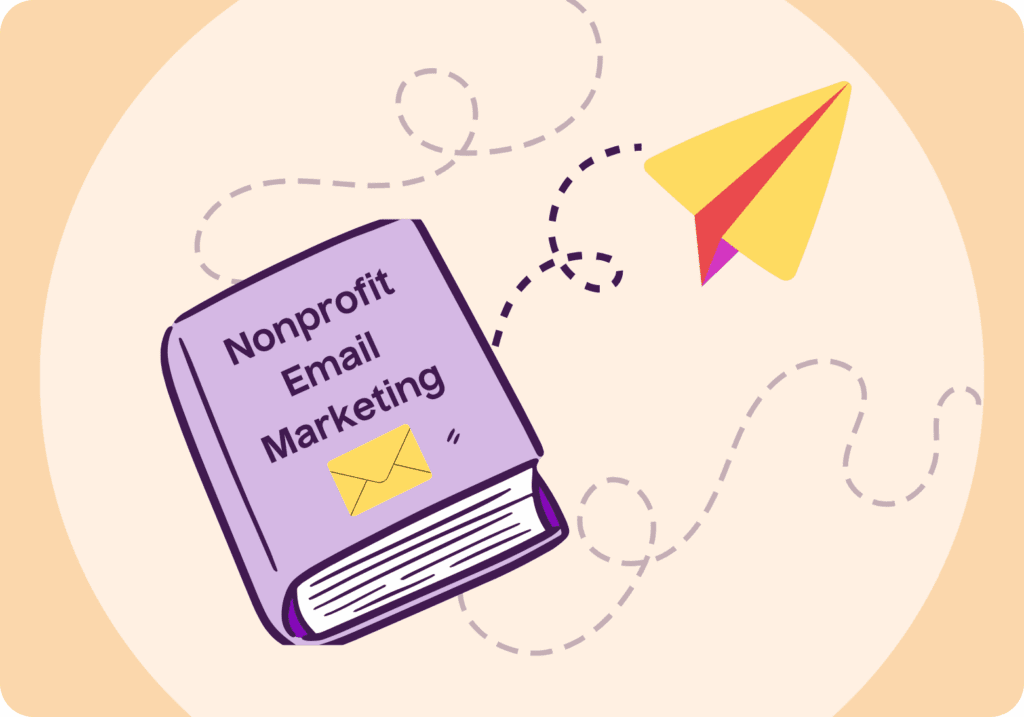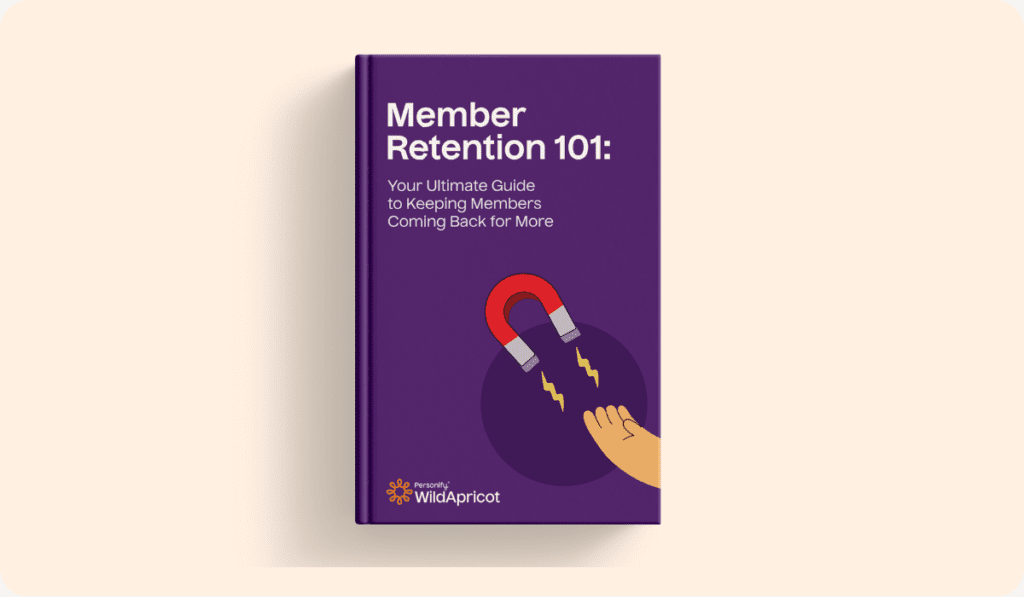If you’ve ever added a few keywords to your website, hoping it would boost your SEO and overall online visibility, you’re not alone. But with AI changing how people search, it’s fair to ask: Is SEO still relevant for nonprofits?
The short answer: Absolutely! But not in the way you might expect.
Modern SEO isn’t about tricks or algorithms. Today, it’s about connecting with real people. Whether it’s a donor looking to give, a volunteer searching for a cause or someone in need of your services, SEO helps them find you.
This guide breaks it down, simplifying SEO tips for nonprofits in 2025. Spoiler alert: this includes how AI is reshaping search, the role of marketing automation and how your organization can show up and stand out online. We’ll share a few smart, manageable steps (no big budget or marketing team required).
Top Factors That Influence SEO for Nonprofits in 2025
Search engines today – whether traditional like Google or AI-based like ChatGPT – use hundreds of signals to determine which nonprofit pages are useful, trustworthy, and relevant. Here are the top-10 SEO factors that matter most to nonprofits.
1. Content Relevance & Search Intent
Your content and URLs should be super clear. For instance, when you create a new page on your website, it usually gives you a default URL, such as http://yourdomain/page-10. This isn’t easy to remember or share. But you can make it better by changing it to something descriptive, such as http://yourdomain/donate-today or http://yourdomain/volunteers-in-Chicago. This helps both visitors and search engines understand what your page is about – and get found more easily!
2. E-E-A-T: Experience, Expertise, Authority, Trust
This matters a lot for nonprofits working in sensitive areas like health, finance, education or social justice. For example, Doctors Without Borders builds trust by showcasing the medical expertise of its staff, sharing transparent reports and highlighting partnerships with credible organizations. Demonstrating real experience and authority reassures donors and beneficiaries that your nonprofit is reliable and impactful.
3. User Engagement
Metrics like bounce rate, dwell time and click-through rate show whether your site is delivering value. If people stay on your pages, explore more content or take action (like donating or signing up), it’s a strong signal to search engines that your site is beneficial and trustworthy.
4. Mobile Optimization & Page Speed
Most visitors browse on mobile devices. A slow or clunky site not only frustrates users but also lowers your search rankings and damages trust. WildApricot’s mobile-friendly templates and drag-and-drop website editor make it easy to build a site that looks great on any device. Mobile experience matters for your members and supporters!
5. Accessibility
Screen reader support, alt text, high-contrast design and simple navigation aren’t just ethical priorities – they now directly impact your site’s SEO. Search engines increasingly reward websites that provide a usable experience for all visitors. This means making it easy for users to find information and take action, while also performing well in search. Not sure where to start? W3C’s Accessibility Guidelines offer practical steps to make your site more inclusive and more discoverable.
6. Internal Linking
Linking related content throughout your site helps users explore more of your mission. But more than that, it helps search engines understand the structure and relevance of your pages. For example, if you run a youth mentorship program and have a blog post about volunteer impact, link it to your “Get Involved” page or a related success story. This not only improves SEO but keeps visitors engaged longer.
Example: The Nature Conservancy does this well – their articles frequently link to related projects, donation pages or educational resources, guiding readers deeper into their site and mission.
7. Backlinks from Reputable Sources
When credible websites link to your content, it signals to search engines that your site is trustworthy and authoritative. These backlinks can come from universities, news outlets, government websites or trusted partners.
Example: charity: water regularly earns backlinks through media coverage, partner campaigns and speaking engagements.
Tip: Strengthen partnerships and pitch your impact stories to local news outlets or industry blogs (every earned link helps!).
8. Local & Cause-Specific Signals
Search engines prioritize local relevance. Optimizing for your location and nonprofit niche helps you show up in the right searches.
Example: Meals on Wheels local chapters optimize their sites with location-specific keywords and service details, helping community members find nearby programs quickly.
For actionable tips, check out Google’s guide on local SEO for nonprofits.
9. AI-Readiness
Clear, structured, factual content helps your organization show up in AI-generated summaries and answer boxes. This makes it even more critical for you to write clear, well-structured content.
For example, customers on WildApricot’s platform are able to organize their site’s content intuitively, making it easier for AI tools to pull accurate summaries and answer questions.
As Judy Hale of Hale Associates shared after moving her nonprofit’s site to WildApricot:
“It’s easy for me to use – that’s huge. You want ease of use and the ability to quickly update or change your theme. To me, it should be a living, agile system.”
Whether you’re updating your site or building new content, usability and AI readiness – for you and your audience – matters more than ever.
10. Keyword Usage Still Matters
Keywords remain essential, but only when used naturally within content that genuinely helps. Aim for clear, relevant pages without the pressure to stuff keywords awkwardly. By focusing on meaningful, member-focused messaging, you’ll improve your SEO while creating a site that reflects your mission and connects with your community.
What SEO Really Means for Nonprofits
At its core, SEO is about discoverability. It’s the practice of creating and organizing content so that your audience – whether local, global or niche – can find what they need.
Why It’s Especially Valuable for Nonprofits:
- Organic traffic is free (and sustainable)
- SEO builds trust (visible = credible)
- It scales (a single blog post can attract visitors for years)
- It complements your fundraising, volunteer recruitment, and program visibility
Content Strategy Is the Heart of SEO
If you want to rank in 2025, focus less on keywords and more on usefulness. Great content answers questions, solves problems, and shows real-world experience.
Content ideas that work for nonprofits:
- Volunteer and donor FAQs
- How-to guides (“How to organize a food drive”)
- Impact stories with visuals
- Community updates
- Resource lists
- Local service landing pages
- Answers to questions you hear every day
Tip: Use headings and bullet points to make it easy to skim. Humans and search engines love clarity.
Optimizing for AI & LLM-Based Search
Chatbots, smart assistants and AI search tools are rapidly changing how people find your information. Google’s Search Generative Experience (SGE) and platforms like ChatGPT quote from well-structured websites (here are several templates and examples for a little creative inspiration).
Use these tips to make your site’s content AI-friendly:
- Write clear, factual answers in 1–3 sentence blocks
- Use FAQs and list formats
- Avoid jargon; speak plainly
- Label sections clearly with headings
- Publish content under real authors with bios
Why it matters: When someone asks ChatGPT or Google AI “How can I volunteer in [city]?” your organization’s website can be the top answer. So make sure your content is structured correctly.
Make Your Site Mobile-Friendly and Accessible
Nonprofits serve diverse communities, so your website should reflect that.
Here are some key tips:
- Use responsive design (works on all screen sizes)
- Include alt text for images
- Keep menus and navigation simple
- Use high-contrast colors and readable fonts
- Ensure fast load times
Accessibility isn’t optional – it impacts user experience, legal compliance, and SEO rankings.
Keyword Usage: Smart, Not Spammy
Yes, keywords still help. But today’s algorithms are more advanced. They understand context, synonyms, and related terms.
Where to use your keywords:
- Page title
- First 100 words
- Meta description
- Headings (H1, H2)
- Image alt text
- URL slug
Don’t: Repeat the keyword over and over.
Do: Use it naturally, and pair it with related phrases (e.g. “food donation,” “hunger relief” “free meal programs”).
Internal Linking = Better Rankings + Better Experience
Internal links are underrated. They help:
- Keep visitors on your site longer
- Share authority between pages
- Help Google map your content structure
Example: From a blog post or email series about food insecurity, link to your donation page or local service area landing page.
Build Backlinks Without Being Spammy
You don’t need to be a PR agency to get good links.
Here are some easy link-building tips for nonprofits:
- Ask partners to link to your site
- List your organization in local directories
- Share your blog posts with community leaders
- Pitch helpful articles to local news sites
- Contribute guest posts or guides to aligned orgs
Backlinks are still one of Google’s most powerful ranking factors, especially when they come from credible sources.
Local SEO: Show Up for the Right People
Many nonprofits serve specific communities. Local SEO helps you get discovered in local searches like:
- “Shelters near me”
- “Volunteer opportunities in Chicago”
- “Youth mentoring nonprofit Atlanta”
Here are some easy local SEO tips for you to use:
- Create a Google Business Profile and keep it updated
- Use your city/state in titles and headings
- Include location-based FAQs and landing pages
- Encourage supporters to leave reviews
Avoid These Common SEO Mistakes
- Keyword stuffing
- Ignoring accessibility
- Writing vague or thin content
- Not optimizing for mobile
- Using outdated content or broken links
- Over-relying on social media traffic alone
Measure What Matters
SEO success isn’t just about pageviews. Make sure you’re tracking:
- Which pages bring in the most organic traffic
- How many people visit your donation/volunteer pages from search
- Bounce rate and time on page
- Which blog posts lead to newsletter signups
Final Thoughts: SEO That Fuels Your Mission
Effective SEO ensures the right people – whether donors, volunteers, journalists, policymakers or just those seeking help – can find you exactly when it matters most. That’s why thousands of nonprofits, clubs, charities, chambers, and associations trust WildApricot to power their websites and outreach.
Ready to bring all of this advice to life? Start a free trial of the WildApricot platform. It’s designed to be search-engine friendly so that the content of your site will easily be read and indexed by search engine crawlers. Let’s get started!










